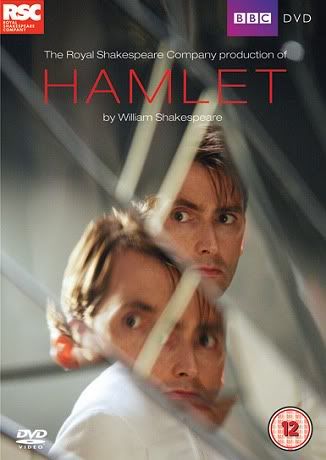The charge, accomplice in the murder of the king!
I am compiling ideas for my paper and decided to write it
down as a blog; I figured I was writing it down anyways, might as well do it
here. This will basically be a “working” outline for my paper. I usually don’t
do outlines, and just write and change things as I go, but for a 20+ page paper
I feel I may benefit from being a bit more organized. Plus any feedback would
be much appreciated (but not obligated). Also, I feel my presentation did not
go as well as I had hoped…ah well, what done is done. As Disney said, “Keep
moving forward!”
Soooo… my thesis… it is a working thesis... I am going to
explain in my paper how Shakespeare was influenced by Greek tragedies and Hamlet is a product of these influences.
The themes of the Greek plays especially those involving the characters Clytemnestra,
Electra, Orestes, Agamemnon, and Aegisthus echo throughout Hamlet. In particular, I plan on focusing on the character
Clytemnestra and how she manifests herself in Shakespeare’s character Gertrude.
The link between these two characters provide support that Gertrude was at the
very least involved in the plot to murder the king. I also plan to gain support
with Iris Murdoch’s novel, The Black
Prince. Like Agamemnon, Murdoch’s character Arnold commits adultery. When
his wife, Rachel, finds out, she is driven to murder. I plan to use this as
evidence that like Clytemnestra and Rachel, Gertrude was driven to murder her
husband, Hamlet, Sr.
Obviously I need to clean this up a bit, but I think this is
the direction I want to go in.
I plan on added textual evidence from Hamlet that mirrors the Greek characters. I have found several
critical essays that support the theory that while Shakespeare may not have
been able to read Greek, he did have many scholarly friends which may have led
to detailed discussions involving Greek plays and their intriguing characters.
As a writer there can be no doubt that Shakespeare would have been interested
in these subjects.
The other essays I have found will focus on Gertrude’s
motives as a woman during that time period, as well as those motives shared by
Clytemnestra. I feel there is enough said (and not said) to support the theory
of her involvement. The article titled Queen
Gertrude: Monarch, Mother, Murderer states the theory that Gertrude uses
indirect aggression to achieve her goals. Indirect aggression is a form of passive
aggression. It happens typically when a person rebels against another person, a
person typically in a placement of high authority. A person who uses indirect
aggression usually uses it when they feel powerless in a situation. This theory
fits perfectly with all three of the female characters I wish to focus on,
Clytemnestra, Rachel, and Gertrude. All three are in submissive roles in
society and are victims in their own right. Because of the textual and overt
admission of guilt in Clytemnestra’s case, the seemingly obvious witness to
Rachel’s guilt, it leads the reader to believe that Gertrude must be guilty as
well, even though there is no direct textual evidence and only circumstantial
evidence.
I hope this will come together as nicely as I picture it in
my head. I am excited to prove Gertrude guilty, even though most critics believe
she is innocent. I feel there are too many gaps in her story for us to make
sound judgment. I feel there is enough said and not-said to support my theory,
and the theory of a few other critics. Plus, I do enjoy playing the devil’s advocate.





